What does queer mean? Unpicking the history of the reclaimed LGBTQ+ term
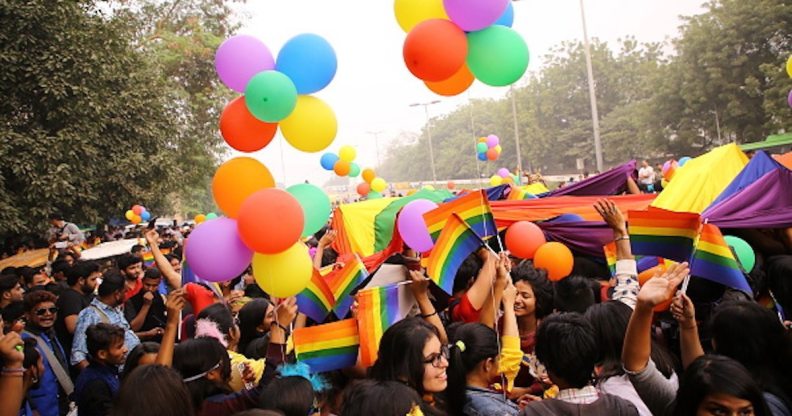
(Getty)
What does queer mean? Well, queer means different things to different people.
The word “queer” remains controversial, but while some still do find the term derogatory, most LGBTQ+ people have proudly reclaimed the anti-gay slur and use it in a positive light.
In the English language, queer dates back to the 16th century, and was possibly derived from the German word ‘quer’, which translates as ‘oblique’ or ‘perverse’.
Originally defined as “odd”, “strange” or “peculiar”, the term took on a more sordid meaning from the mid-20th century when it was used to pejoratively refer to those with same-sex desires, especially gay men.
But, with the rise of LGBTQ+ activism in the 1970s and 1980s, some gay rights campaigners positively reclaimed the word “queer” as an umbrella term for gender and sexual minorities.
Today, the word is widely used by millennials as an inclusive term to refer to anyone who is not straight and/or not cisgender.
But, for some people, particularly older generations, “queer” still carries negative connotations.
A few years ago, Twitter banned some users who had described themselves as “queer,” facing a backlash from those who had reclaimed the term.
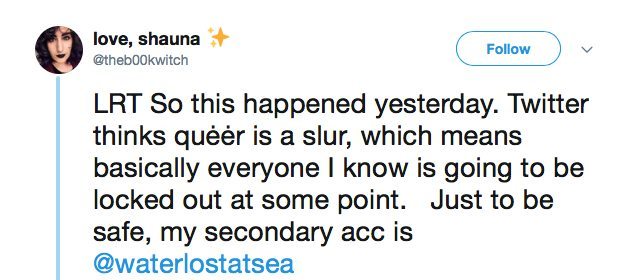
(Photo: @theb00kwitch /Twitter)
Queer definitions
According to Brian Lewis, whose book British Queer History was published in 2013, the word “queer” today has three primary uses.
He explains: “’Queer’ is used in three main ways: as an act of reclamation from homophobes; as an umbrella term for the micro divisions of the LGBT+ community; and as a marker of sexual fluidity in opposition to heterosexual and homosexual binaries and identities.”
For Lewis, the term is “one of the most useful—and controversial—categories of analysis in the study of sexuality.”
Similarly Alan Butler, a research fellow in history at the University of Plymouth, who is also secretary in the LGBTQ+ arm of the Oral History Society, recognises this contradiction.
“’Queer’ has had multiple meanings through time,” he says. “Currently it’s framed by many as an umbrella term for people who exist outside of heteronormative and cis gender norms. For many people though it’s been derogatory and still is.”
Meanwhile, Justin Bengry, who lectures in and convenes the Queer History MA at Goldsmiths, University of London, the first course of its kind in the UK, says: “In academia we often use ‘queer’ as an umbrella term.
“As an inclusive term to include the widest range of gender and sexual diversity in the past and the present.”
He continues: “Some activists too have positively reclaimed ‘queer’ as an inclusive term that welcomes people beyond the LGBTQ+ spectrum or whose identities fall outside those categories.
“Some people don’t want to be identified by LGBTQ+ categories – they reject being cateogrised and being labelled.“
Queer and same-sex desire
Early recorded examples of queer meaning same-sex desire include a letter written in 1894 by John Sholto Douglas, 9th Marquess of Queensberry.
Bengry talks about a letter he has read dating from the 1930s where the writer talks about being “queer” in reference to his desire for another man.
He explains: “Even though he’s writing in terms that are similar to our understandings of ‘gay’ today, there are still important differences in the past. But he’s certainly writing about same-sex desires.”
The mid-20th century and negative meaning
From the mid-20th century onwards, however, the term started to take on a negative meaning and was used to pejoratively refer to LGBTQ+ individuals, particularly gay or bisexual men.
Bengry says that by the mid-20th century, it was being used in a way that was “derogatory and venomous and negative.”
Butler explains: “In the 1940s, 50s and 60s, the term was very prevalent and used to describe and often put down LGBT people.
“It tended to be associated most closely with gay men and was used as an insult. The continued through the 80s and 90s and even today some people use it as an insult or as a term of hatred.“
Reclaiming the word “queer”
As Lewis writes in his book, British Queer History, from the 1980s the word “queer” began to be reclaimed by “radical grassroots activists in organisations like Queer Nation and ACT UP (in the US) and Outrage! (in Britain).”
These individuals, Lewis writes, “began to deploy it as a calculated and edgy act of reclamation.”
By reclaiming the word, says Bengry, LGBTQ+ rights activists redefined themselves – and hit back against those who had used the term to insult them.
He says: “From the 80s and 90s, with the development of a more radical activism and queer theory, ‘queer’ really came to be redeployed in opposition to the venom of its use in the past.
“Queer people now said: ‘No, this is our word, and we’re taking it back … we’re reclaiming it for our own purposes and activism.'”
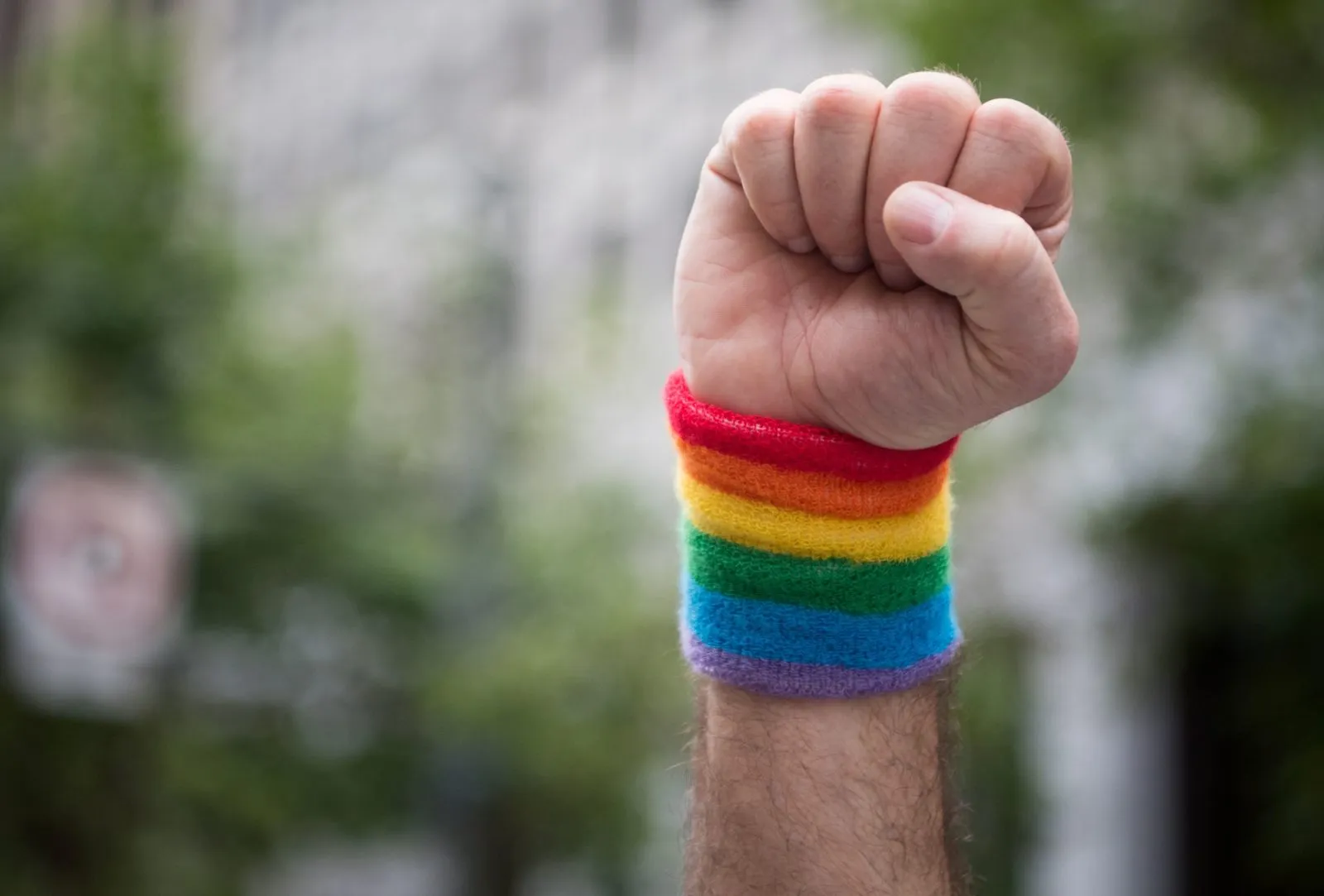
(Getty)
Using the word with caution today
But Bengry says the “strongest association” that “many people alive today” still have is of queer being used “threateningly, dangerously, as a weapon, aggressively.”
Consequently, he says, we must act with awareness when using the term.
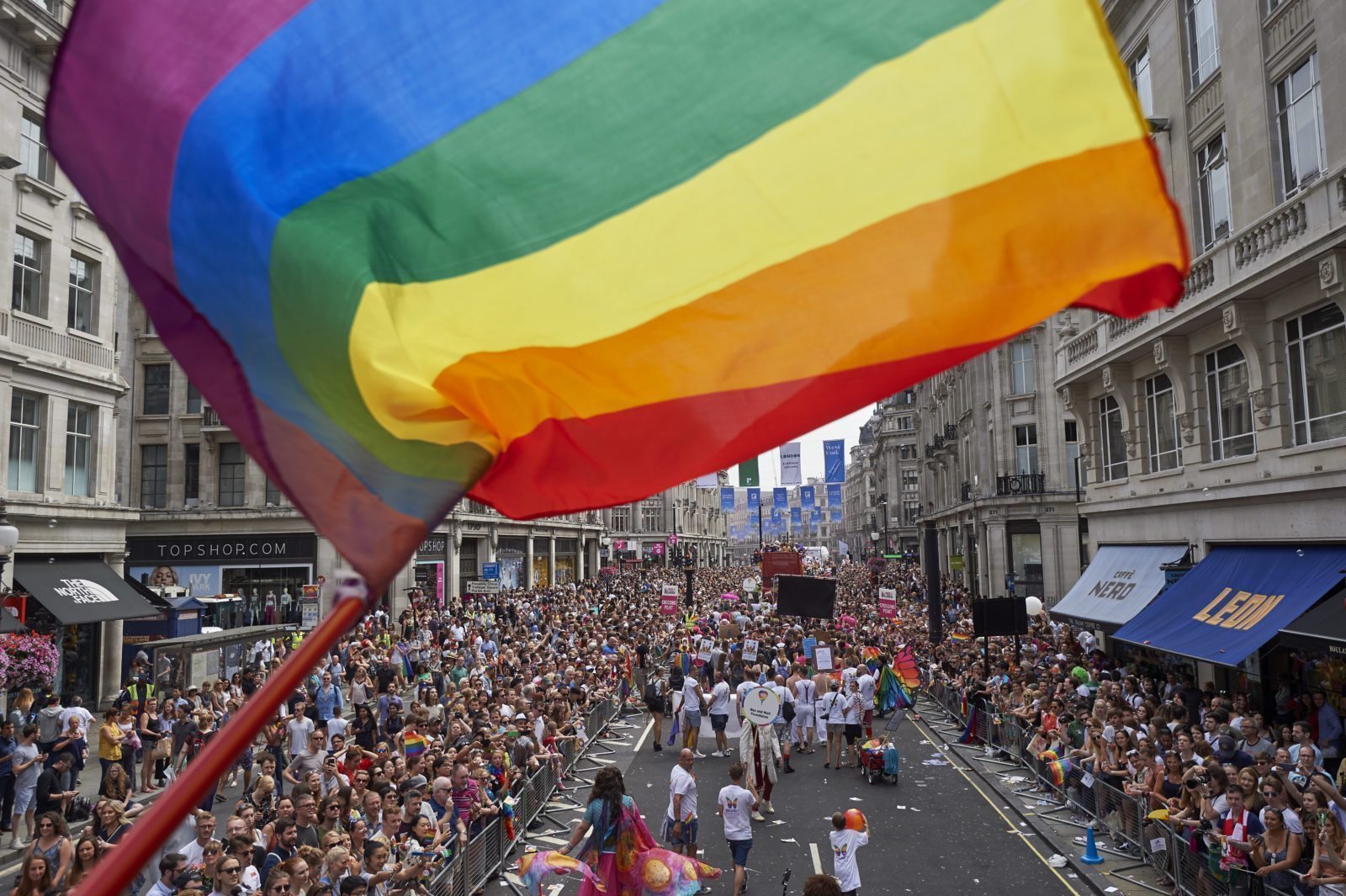
Pride Parade in London. (NIKLAS HALLE’N/AFP/Getty)
He continues: “Many people were physically assaulted and emotionally harmed, and that was the word that accompanied those assaults.”
“That threat and violence is still incredibly resonant for them. It’s something that we all have to bear in mind when we use [queer] today – we can be re-traumatising people by using this word.”
As Bengry points out, the term “is useful and complex”. He adds: “Some people today actively claim it as an identity. It also recognises a much greater diversity of experience and identity than any other term.”
For Butler, “queer” is particularly a taboo word in Plymouth, where he teaches, because of a homophobic murder in 1995. After the crime, someone sprawled the homophobic graffiti “no queer’s here” (sic) at the scene of the murder.
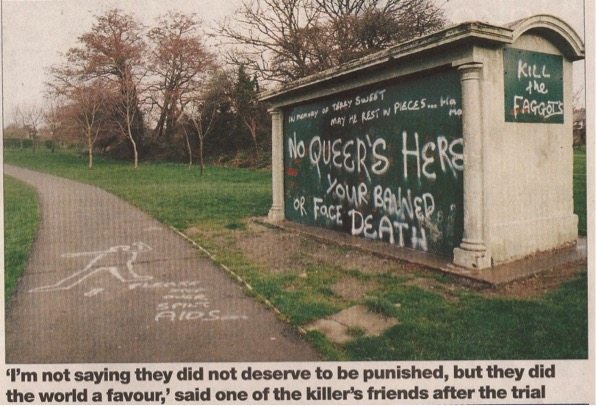
Still, Butler is happy that, at least outside Plymouth, the word has been positively reclaimed.
“If something perceived as an insult is owned and celebrated by you then it loses its power in terms of hatred,” he says.

